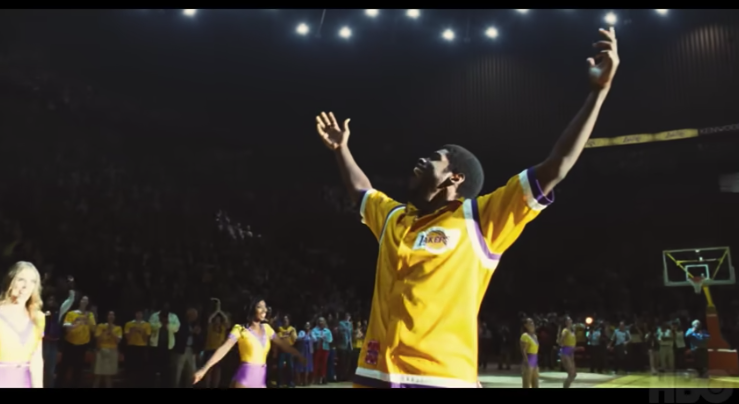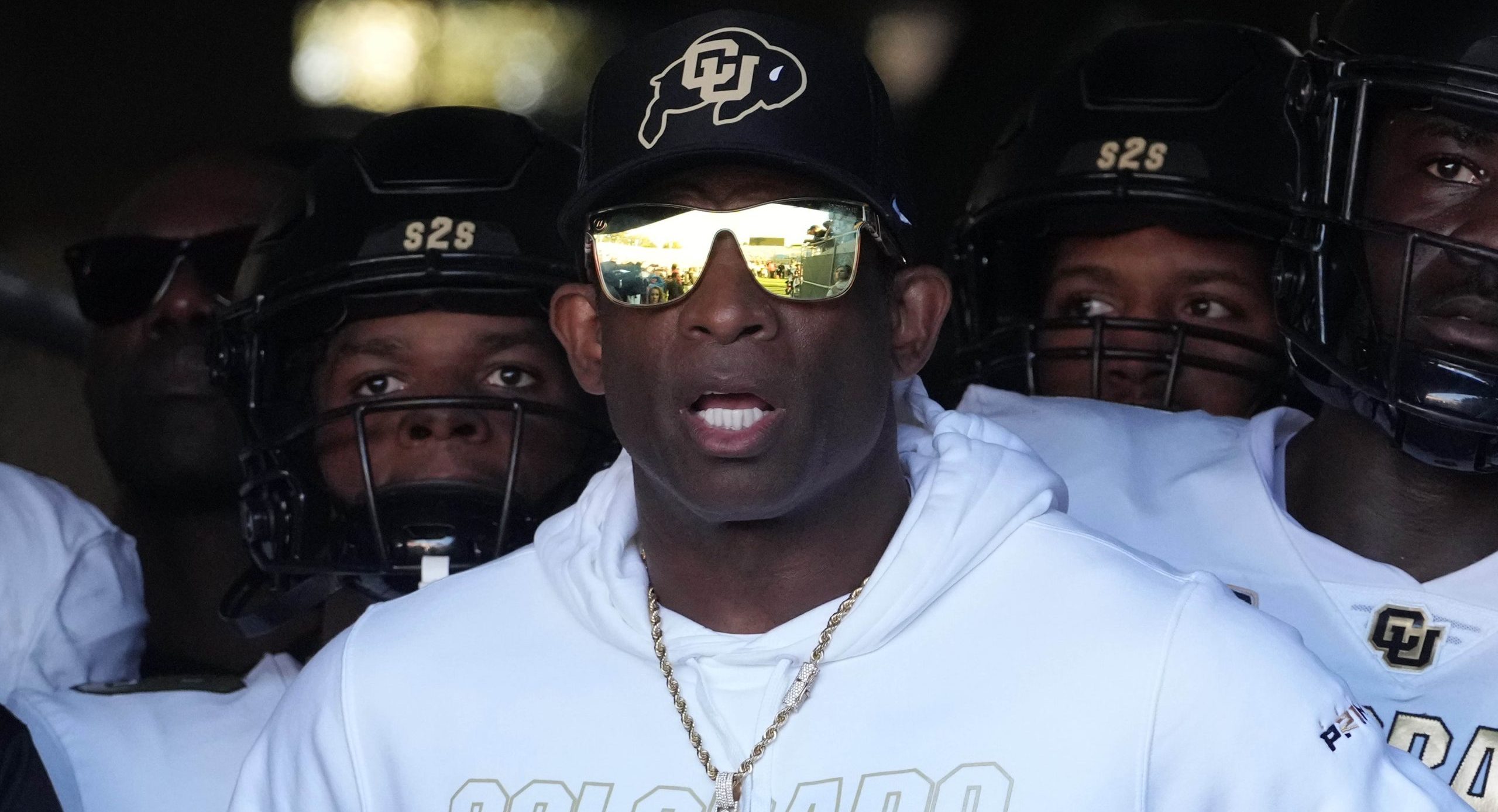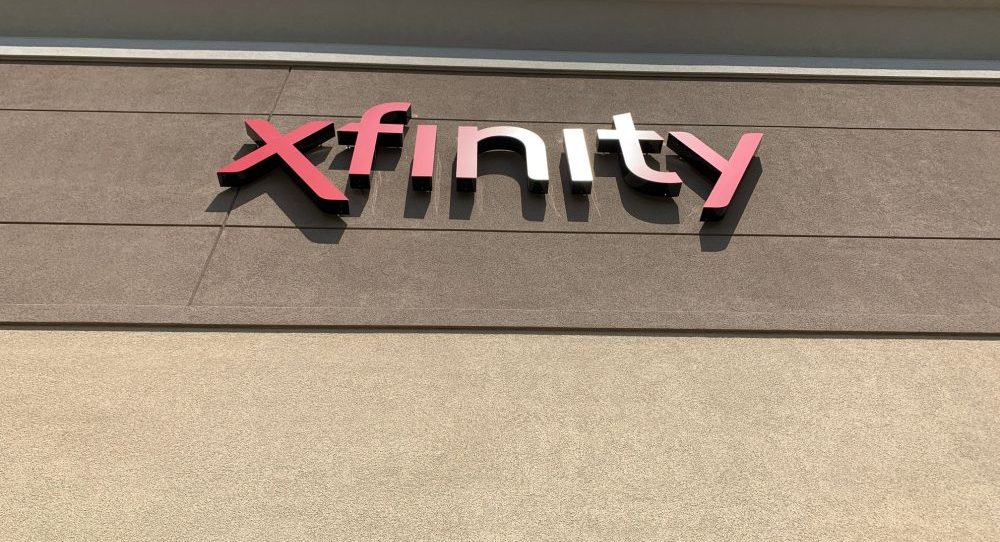The problems don’t truly begin until after you start winning. At least, that’s what Pat Riley has preached throughout a lifetime of success.
In his self-help/motivational book, The Winner Within, Riley writes about the ‘Disease of Me.’ In short, it’s his observation that once a team achieves its ultimate goal everybody is susceptible to the overpowering belief that they’re the one responsible for the winning.
Call it hubris. Call it selfishness. Call it an underlying theme of Season Two of HBO’s Winning Time: The Rise of the Lakers Dynasty, which returns Sunday night. Season One of the Adam McKay project was popular with critics and audiences. In trademark McKay style, it was flashy, over-the-top, and sometimes cartoonish. It was also wildly entertaining with terrific performances.
This time, McKay doesn’t veer too much from his winning formula. But now with established characters that the audience knows, the show is free to dive deeper into stories with not as much exposition. That’s the blessing of having a follow-up season. The curse can be living up to lofty expectations.
If there’s one noticeable change in Winning Time, it’s that it feels more grounded. McKay gives the viewers what they want but also puts a fullcourt press on the conflicts. It seems like every character is in a grudge match with someone else.
Paul Westhead is fighting with Magic Johnson. Westhead is also fighting with Pat Riley. Magic is fighting with his teammates. Jerry Buss is fighting with his children, his new significant other, and Magic. And, oh yeah, while all this squabbling is going on, the Lakers are fighting to win more championships.
Since Winning Time is based on real-life events and Jeff Pearlman’s book on the Lakers Showtime era is the source material, most basketball fans already know the outcomes of these disputes. It’s a credit to McKay and the writers of this sports drama that they are still able to build tension and capture your interest in these familiar settings. We know from history, as well as the trailer, that this is all building towards a showdown of the basketball rivalry that defined the NBA: Magic’s Lakers vs. Larry Bird’s Boston Celtics.
It’s the how-we-got-there part that drives Season Two’s narrative. And while the show does feature plenty of Magic (Quincy Isaiah) and Bird (Sean Patrick Small), the most fascinating dynamic is the demise of Paul Westhead (Jason Segel) and the rise of Riley (Adrien Brody).
Coaches are not immune to the Disease of Me. They have egos too and can start believing their exaggerated sense of self-importance. Segel expertly captures Westhead’s devolution with terrific acting. It’s possibly the best work he has done. Segel’s Westhead displays an interesting combination of paranoia, insecurity, and arrogance. He’s so committed to his vision that he can’t see what’s crumbling around him. The scholarly Westhead compares himself to Julius Ceasar, betrayed by a close confidant when he is actually the author of his own fate.
Brody’s Riley is not Brutus. He repeatedly warns Westhead at every turn, but the head coach refuses to listen. For viewers who were not sold on the casting of Brody as Riley, Season Two is where we see the full transformation. In every episode there are slight tweaks until near the end the Riley we know today is revealed: a fearless taskmaster who was never married to one system of play but instead was committed to getting the best out of the talent he had.
It’s a flattering portrait that the real Riley would likely approve of, especially when the 1984 NBA Finals start.
Season Two culminates with a recreation of that historic matchup against the Celtics, and the on-court basketball action is terrific. So is the off-court action. Winning Time does an exceptional job of recreating the sheer hostility of the old Boston Garden which made it one of the most difficult places to place in league history.
There is so much to overcome, so much bickering between so many characters, you can sense what’s coming. That’s what makes the final scene in Season Two so poignant. We won’t reveal it here, but it’s a moment we can all relate to.
Sometimes you’re too tired to fight anymore.
Winning Time debuts Sunday at 9 p.m. ET/PT on HBO. It will also be available on Max.







